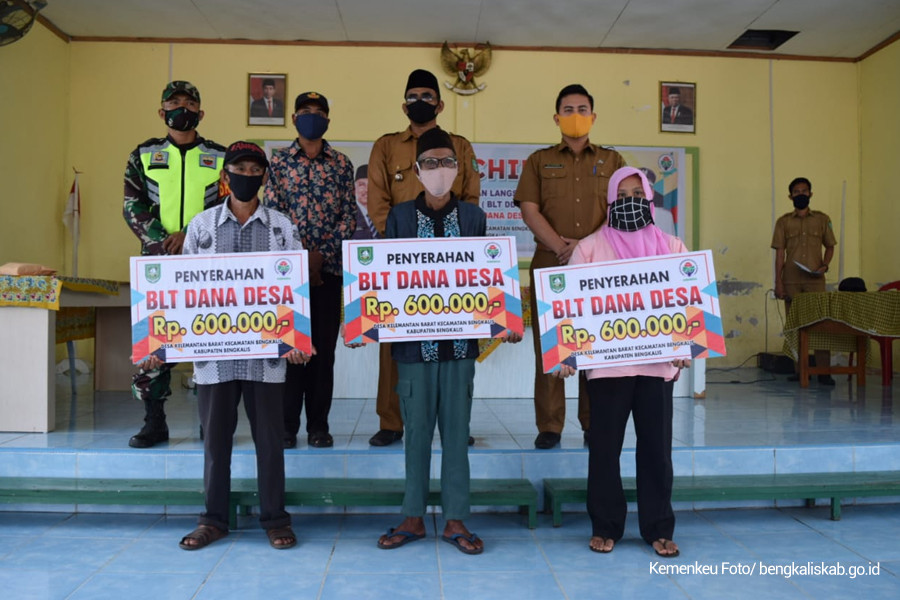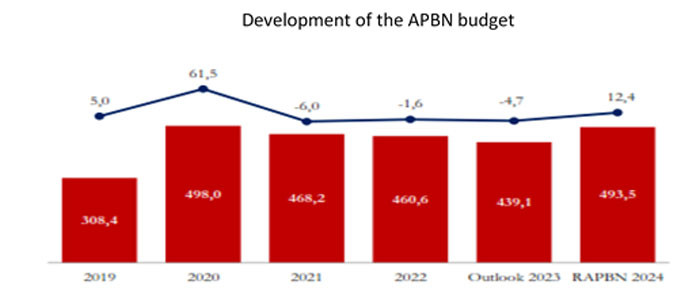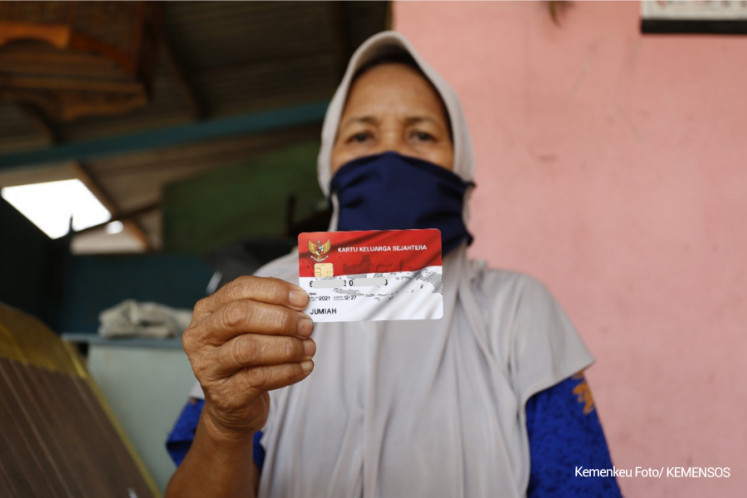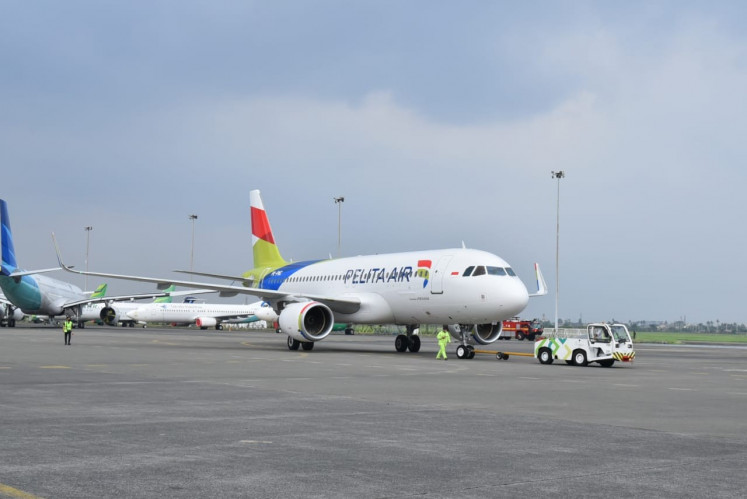Popular Reads
Top Results
Can't find what you're looking for?
View all search resultsPopular Reads
Top Results
Can't find what you're looking for?
View all search resultsIndonesia to transform social protection program to alleviate poverty
The government has a plan to reduce the poverty rate through the social security budget policy (APBN) allocation as the main instrument of fiscal policy, which plays an important role in increasing economic growth.
Change text size
Gift Premium Articles
to Anyone
T
he government has a plan to reduce the poverty rate through the social security budget policy (APBN) allocation as the main instrument of fiscal policy, which plays an important role in increasing economic growth. To achieve this, the APBN has a distribution function which consists of a series of policies to improve community welfare through fair distribution to marginalized communities (perlinsos). The social security budget in 2024 is planned at IDR 10.6 trillion.
Based on Law No. 13/2011, certain marginalized groups have the right to receive social protection and services through social security and sustainable welfare conditions. In accordance with Law No. 11/2009, the protection is classified as efforts directed at preventing and dealing with risks from social shocks and vulnerabilities, which are implemented through social assistance, social advocacy and legal assistance.
"In the RAPBN for the 2024 fiscal year, the social security budget is planned at Rp 493,494.1 billion. The social security budget in 2024 will continue to be optimized to encourage improvements in the quality of human resources and improve the welfare of the poor and vulnerable," said Putut Hari Satyaka, director of budget for human development and culture at the Finance Ministry.
In line with this, the APBN will be allocated to six different priorities. Firstly, it will be directed at improvement of databases and targeting methods in determining beneficiaries of social security programs and other government programs. The second will be to develop the Social and Economic Registration (Regsosek) and digitalization of benefit distribution by utilizing technology while increasing financial inclusion.
Furthermore, it will also be directed at encouraging convergence or complementarity between programs. It will then be followed by the improvement of the design and quality of social security implementation through regular reviews of the amount of benefits, and lastly, to support the strengthening graduation from poverty through empowerment programs, including increasing access to capital and access to employment.
The social protection reform in 2024 is designed to increase the effectiveness of the program as an effort to achieve the 2020-2024 RPJMN target as a long-term investment to realize the development of quality and competitive human resources as one of the capital efforts to accelerate inclusive and sustainable economic transformation.
Reform of the social security system has been implemented in stages and in a measurable manner since 2021. The objectives include expanding the reach of coherent social planning, in line with ensuring accurately targeted, timely and appropriate benefits based on vulnerabilities in normal and disaster conditions by paying attention to gender equality and the principle of inclusivity.
Secondly, it also includes developing an integrated, up-to-date, accurate and accountable database for planning, budgeting, target setting and program implementation through the development of Regsosek.
The other two objectives are to strengthen funding and social development integration schemes that ensure program continuity, and to increase the empowerment of beneficiaries by expanding social assistance distribution methods using financial services that are inclusive.
The last objective is to ensure control over the implementation of social development system reform through strengthening monitoring and evaluation and reporting systems.
However, the implementation of the social assistance program will still face various challenges in 2024, including the complexity of program characteristics and the governance of institutions implementing social assistance and the existence of inaccurate targets in the provision of social assistance and subsidies, among other factors.
To overcome the obstacles, social security reforms that will be implemented in the 2024 policy framework include the utilization and update of the Regsosek data, which is interoperable with various databases with the hopes that it can minimize exclusion and inclusion errors and improve the non-cash social assistance distribution mechanism to increase financial inclusion.
. (Courtesy of Finance Ministry/.)One of the main prerequisites for social development reform is the availability of data covering 100 percent of the Indonesian population. Therefore the development of Regsosek has been mandated since 2022 through Presidential Regulation No. 134/2022, which stipulates that the implementation of initial data collection will be carried out by the Central Statistics Agency (BPS) in 2022 in all districts/cities and the results of the data collection will be submitted to the National Development Planning Ministry/Bappenas in 2023.
“The Regsosek program is a mandate from Presidential Instruction (Inpres) No. 4 of 2022 concerning the Acceleration of the Elimination of Extreme Poverty. The President of the Republic of Indonesia has mandated the elimination of extreme poverty to reach zero percent by 2024. This is in line with the focus on strengthening the acceleration of the implementation of economic transformation to complete the development agenda contained in the 2020–2024 RPJMN and the direction of the President of the Republic of Indonesia [controlling inflation, eliminating extreme poverty, reducing prevalence stunting, as well as increased investment]," concluded Putut.
Source: Finance Ministry












